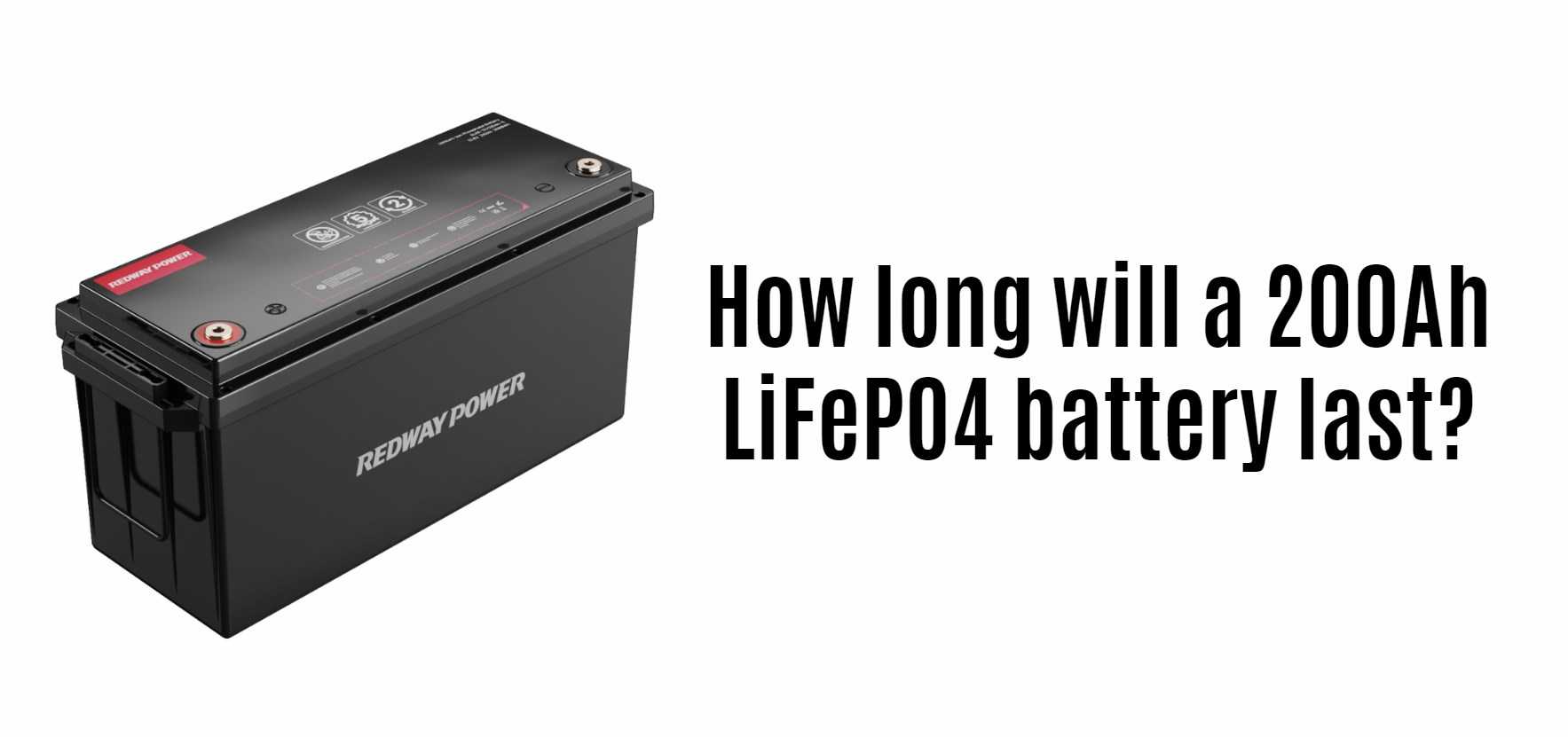Understanding Battery Capacity and Lifespan
What Does 200Ah Mean?
The term 200Ah refers to the battery’s capacity, indicating that it can deliver 200 amperes for one hour or a proportionate amount over a longer period. For example, it could provide:
-
100A for 2 hours
-
50A for 4 hours
Nominal Voltage Considerations
Wholesale lithium golf cart batteries with 10-year life? Check here.
LiFePO4 batteries typically have a nominal voltage of 3.2V per cell. For a standard 12V configuration, four cells are connected in series, resulting in a nominal voltage of approximately 12.8V. Understanding this voltage is crucial for calculating energy capacity in kilowatt-hours (kWh).
Energy Capacity Calculation
Want OEM lithium forklift batteries at wholesale prices? Check here.
Calculating Runtime Based on Load
The runtime of a 200Ah LiFePO4 battery depends on the load applied. To estimate how long the battery will last under different loads, we can use the following formula:Example Scenarios
- For a Load of 600W:
- Load in kW = 0.6 kW
- Runtime = 2.4 kWh0.6 kW=4 hours0.6 kW2.4 kWh=4 hours
- For a Load of 1200W:
- Load in kW = 1.2 kW
- Runtime = 2.4 kWh1.2 kW=2 hours1.2 kW2.4 kWh=2 hours
- For a Load of 300W:
- Load in kW = 0.3 kW
- Runtime = 2.4 kWh0.3 kW=8 hours0.3 kW2.4 kWh=8 hours
Factors Affecting Battery Lifespan
While calculating runtime is essential, several factors influence how long a LiFePO4 battery will last over its entire lifespan:1. Depth of Discharge (DoD)
The depth of discharge refers to how much capacity is used relative to the total capacity of the battery. For LiFePO4 batteries, it is advisable to limit DoD to around 80% to maximize lifespan.
-
A battery with a DoD of 80% means you only use up to 160Ah before recharging.
2. Charging Cycles
LiFePO4 batteries typically offer over 2000 cycles at an 80% DoD, making them suitable for long-term use in various applications.
3. Temperature Conditions
Operating at extreme temperatures can affect performance and lifespan:
-
Optimal Temperature: LiFePO4 batteries perform best between 20°C and 25°C.
-
High temperatures can lead to faster degradation, while very low temperatures may reduce capacity temporarily.
4. Quality of Charger
Using a charger specifically designed for LiFePO4 batteries ensures efficient charging and prolongs battery life by preventing overcharging.Data Chart: Comparison of Battery Lifespan Based on DoD
| Depth of Discharge (DoD) | Estimated Cycle Life | Usable Capacity (Ah) | Total Energy (kWh) |
|---|---|---|---|
| 100% | ~1000 cycles | 200 | 2.4 |
| 80% | ~2000 cycles | 160 | 1.92 |
| 50% | ~4000 cycles | 100 | 1.2 |
Latest News on LiFePO4 Battery Technology
As of October 2024, advancements in lithium battery technology continue to evolve rapidly:Enhanced Energy Density
Recent innovations have led to improved energy density in LiFePO4 batteries, allowing them to store more energy without increasing size or weight significantly.Integration with Smart Technologies
Newer models now feature integrated smart technology that allows users to monitor performance via mobile apps, providing real-time data on charge levels and health status.FAQs About the Lifespan of a 200Ah LiFePO4 Battery
1. How long can I expect my battery to last?
With proper care and maintenance, including limiting DoD and using appropriate charging methods, you can expect your battery to last several years with thousands of cycles.
2. Can I use my battery until it’s completely drained?
It is not recommended to fully discharge your LiFePO4 battery regularly as it can shorten its lifespan.
3. What should I do if my battery is not holding charge?
If your battery is not holding charge as expected, check for potential issues such as faulty connections or consider replacing it if it has reached the end of its cycle life.
4. Is it safe to leave my LiFePO4 battery on charge overnight?
Yes, as long as you are using a quality charger designed for LiFePO4 technology that prevents overcharging.Conclusion: Maximizing the Lifespan and Performance of Your 200Ah LiFePO4 Battery
In conclusion, a properly managed 200Ah LiFePO4 battery can provide reliable power storage with an estimated capacity of approximately 2.4 kWh. By understanding factors such as depth of discharge, temperature conditions, and charging cycles, we can maximize both performance and lifespan for various applications ranging from solar energy systems to electric vehicles.At Redway Battery, we specialize in manufacturing high-quality lithium LiFePO4 batteries tailored to meet diverse needs across various applications. For quick quotes on custom solutions or wholesale inquiries, feel free to contact us today!





